If we want to understand how horses communicate in THEIR language, it’s a good idea to spend lots of time just watching/observing them. Observe how they communicate with each other, and see what you can discern. Join me for a real-time horse energy/body language tutorial…
The other thing you’ll notice when you spend time simply watching horses, is that their physical body and energy body are completely congruent. Unlike humans, they will never smile or hug (for example), while they’re actually upset – like humans do with each other.
So when you observe horses, try to perceive their energy first, then watch and see if their body language confirms, or alters, your ideas.
As you spend more and more time simply watching horses, you will come to understand how things like the angle of your body, where your eyes are looking, whether your posture is straight or rounded, all have meaning to horses.
We can take courses or read books on this form of communication, but the best way to become fluent is to let your horses teach you. Spend hours and hours just watching, noticing, paying attention. When you think you’ve figured something out, test it! Your horses will quickly show you whether your perception is correct, or not.
I have shocked both wild and domestic horses by them realizing, “Wait, what??! She hears/speaks our language?!”
I remember taking care of a couple of horses who’d been born into domesticity and used by humans their whole life. So they gave almost no physical cues – pretty much all their communication was energetic. Domestic horses learn very quickly that physical expression (of anything other than yes) is swiftly punished in one way or another.
I put down hay for these horses and immediately felt their anxiety that they wouldn’t have enough time to eat all the hay, or that I would take it away. Even though their physical body communicated nothing. Not even a flicked ear. So I told them not only would I not touch their hay, I would give them more than they could eat in a day. Utter shock and surprise. But they couldn’t quite believe it.
So after I had distributed two days worth of hay, both loose and in several hay nets, I then gave them alfalfa. Well once I put down the treasured legume, I felt protection/possessiveness coming off one of the horses, and aggression coming off the other. Well okay! I gave each of them a berth of about 4 feet each time I walked by them as I put out 5 piles of alfalfa for them. Again, sending the clear message that there was plenty and I was not going to touch it or come anywhere near them.
Was there a single physical sign of aggression? No way! Not a smidge. But my body instantly responded to their energy by quickly backing away and then giving them a wide clearance as I deposited the remaining piles, and then leaving them completely alone for the next few hours. They were gobsmacked.
But not surprisingly, when horses realize you can hear/understand them AND you then listen to them and do what they want… you build trust very quickly.
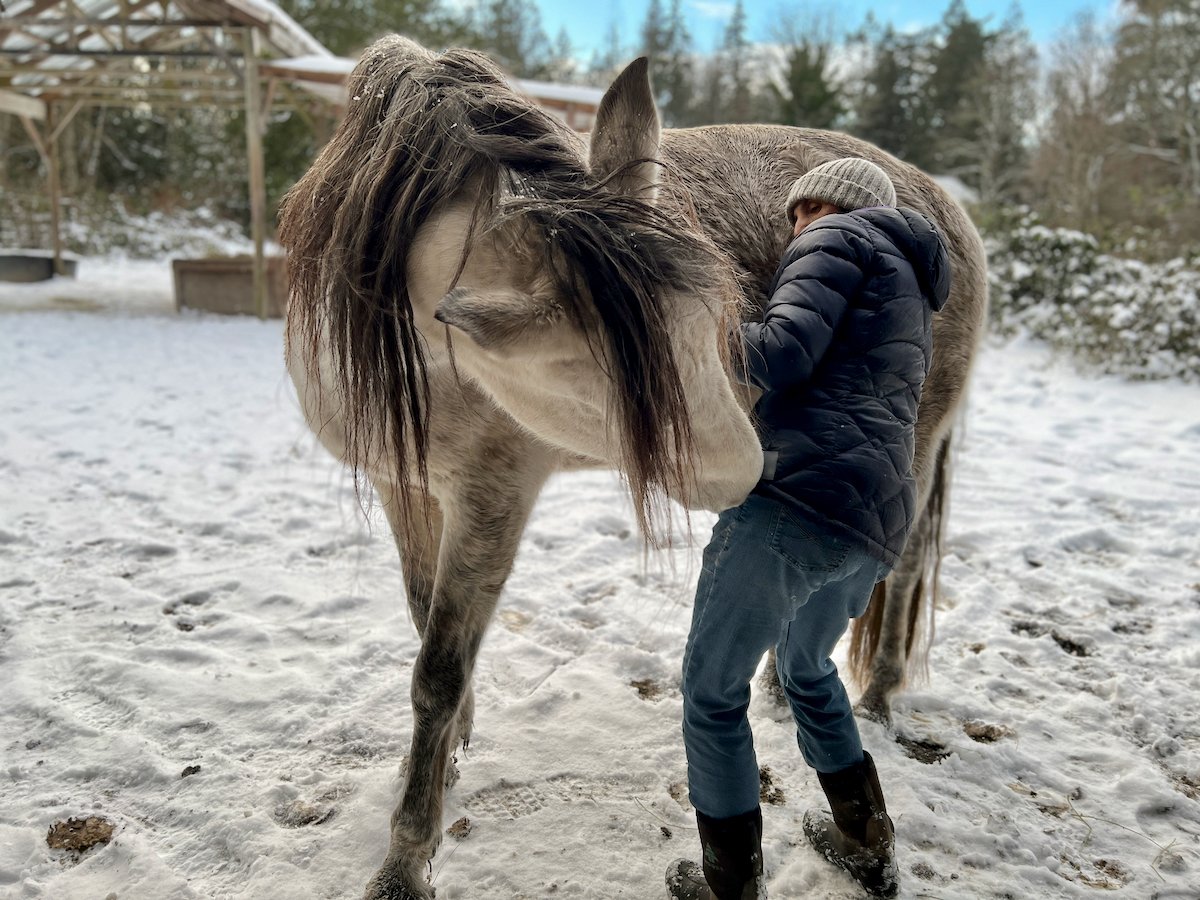
I spent a combined total of less than 6 hours with these horses over the next 10 days and then didn’t see them for a month or two. The next time I saw them, they greeted me cordially and asked for some food, which I provided. About an hour later, my dog started barking. As I scanned the property, I saw that one of them had caught his hoof in the haynet, which was hanging from the fence post and was in full panic mode. Being a very large, strong horse, I knew he would either wreck his leg, or break the fence in the next minute or less, so I tore off towards him at a dead run.
Now here’s where that trust comes in. Even though this horse and I had hardly spent any time together, he had already learned from my behaviour that I could hear him, understand him, and that I listened to him and usually did as he asked (unless I had a good reason of my own not to, using involving herd welfare – which I would then communicate). Therefore, he knew that I was trustworthy. And so when I took a deep breath and said, “Whoooaaa” he calmed himself almost instantly and stood perfectly still as I struggled to unhook his hoof. I had no knife or anything on me, but at least I was wearing gloves. It took me a couple of minutes (those were looooooong minutes) of twisting his leg, while he balanced on his remaining three, and struggling with the net to get his hoof unhooked. But he surrendered completely to my direction, staying as still as he could, even though it must have hurt his leg.
This is no small feat. Because usually when a horse is triggered into full blown panic/flight reaction, they fight like hell until they’re either exhausted or something breaks.
But this is why I say, over and over, that my safety with horses doesn’t lie in control mechanisms. My safety relies on my relationship with the horse. Trust and intimacy is a two-way street. I had already allowed/honored this horse’s aggression, his wish for me to go away, his desire for me to stay 4 feet away from his food piles, and so on. This trust held even into a life-death-panic situation.
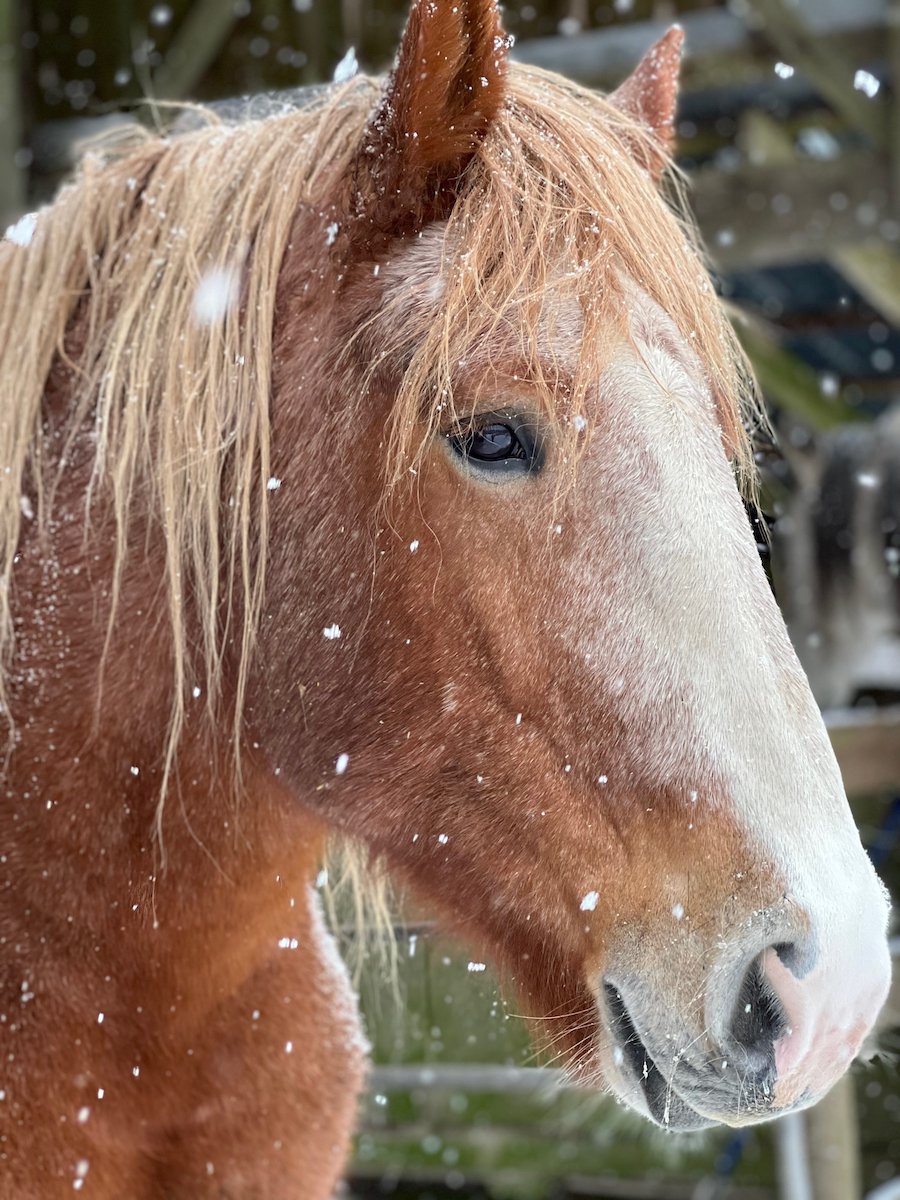
I had a similar incident happen with Big Mama Audelina. There was stack of about 12 heavy-duty steel arena panels stacked against the fence and secured with a chain. Somehow, Aude managed to insert her foreleg 3.5 feet off the ground, into the chain, then pull back, and cause the entire stack of arena panels to fall towards her, while the chain ratcheted tight around her fetlock. Can you imagine?? And yes, she went postal.
Again, I ran towards her, knowing that she MUST go still and stop pulling/struggling for me to be able to get the arena panels off her and then somehow get the chain off her leg, before it broke any one of the three joints from her fetlock down. Luckily a barn helper was also there, so as soon as Aude stopped thrashing about (because I asked her to), I asked Natalie to hold Aude’s leg up, to remove any tension from the leg, while I manoeuvred the chain and panels to create enough slack to get the chain off her leg. Aude went from blind panic to heaving stillness in a second… because I asked, and she trusted me.
If your horse cannot trust you to stop, or go away, or respect their boundaries – if your horse is not allowed to say, “No. Get lost.” Then it will be very hard for your horse to trust you in the midst of terror. True intimacy, love and connection honors the word, “No.” Rock solid trust, that holds in a panic situation, with a horse you barely know, can start from honoring the horse’s “No.”
I realize this goes against most principles of horse training and natural horsemanship. But think about it. Think back over the intimate, trustworthy relationships you’ve experienced in your life… has your “No” been honored in those relationships? Have your boundaries been respected?
And here’s an even deeper question: Are YOU allowed to say No? Do you honor your own boundaries? Do you allow yourself to set strong boundaries around your time, your health, your energy? Do you trust yourself to take care of you?
Start with you. Then extend that respect and permission out to the people, animals, and plants in your life. There has to be a space to say No, to honor boundaries, to negotiate needs. As soon as we take away another being’s autonomy over their own body, “for their own good,” we are in dangerous territory.
If Cobra doesn’t want me to cut his hooves and chooses to go lame as a result, is that not his choice? Is his body his own, or is it mine? Is he free, or is he a slave?
Infantilizing animals, children, or Mother Earth – under the guise of, “But they don’t know any better, so it’s my responsibility to help them,” is a fast ride down a slippery slope.
Horses very clearly communicate NO. Or not right now. As you can see in the video above. Do you listen? Or do you not? And your relationship stems from there. In all the horses I’ve ridden, fallen off of, been bucked off of, not one of them has ever left me and run home, or run away. Taking my semi-feral crew for walks out on the road, or into trails and having something scare the crap outta them so they’ve bolted away… they’ve always come back to me. Or ran 10 feet down the road and stopped and waited for me. No matter what mistakes have been made (usually by me) none of my horses have ever left the relationship (run away or run home) – no matter how scared or how pissed off they are. That is real trust and intimacy – and it is so, so precious.

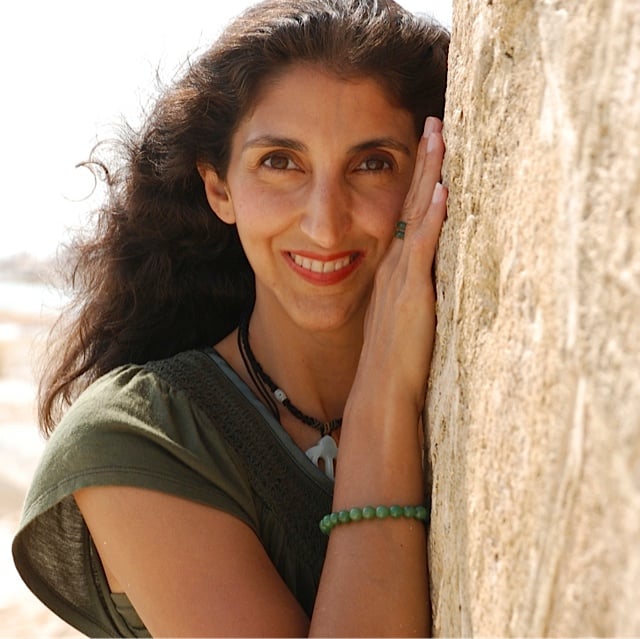
Jini Patel Thompson is a natural health writer and Lazer Tapping instructor. She began riding at age 2 in Kenya, and got her first horse at age 8 in Alberta, and so continues a life-long journey and love affair with these amazing creatures.

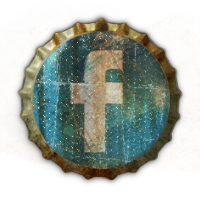
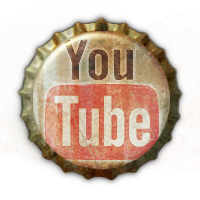


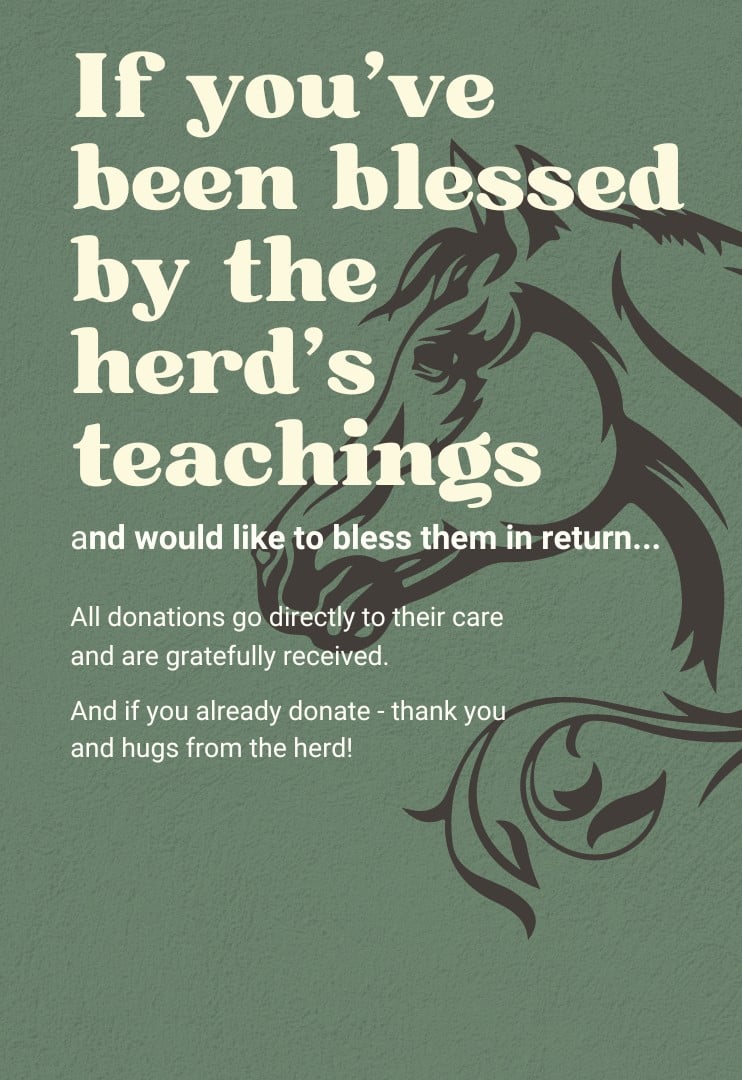
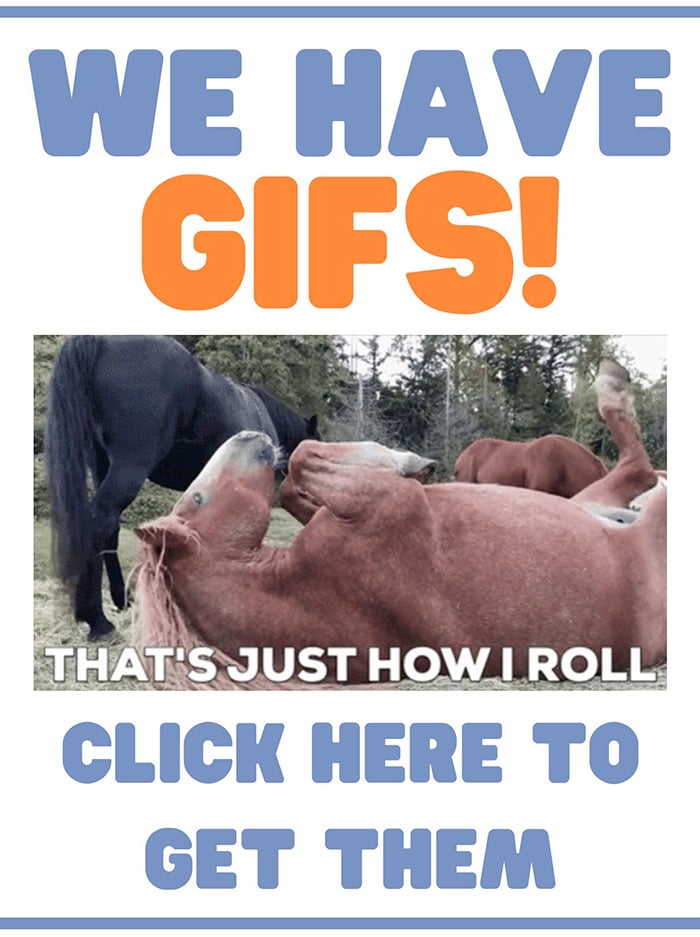
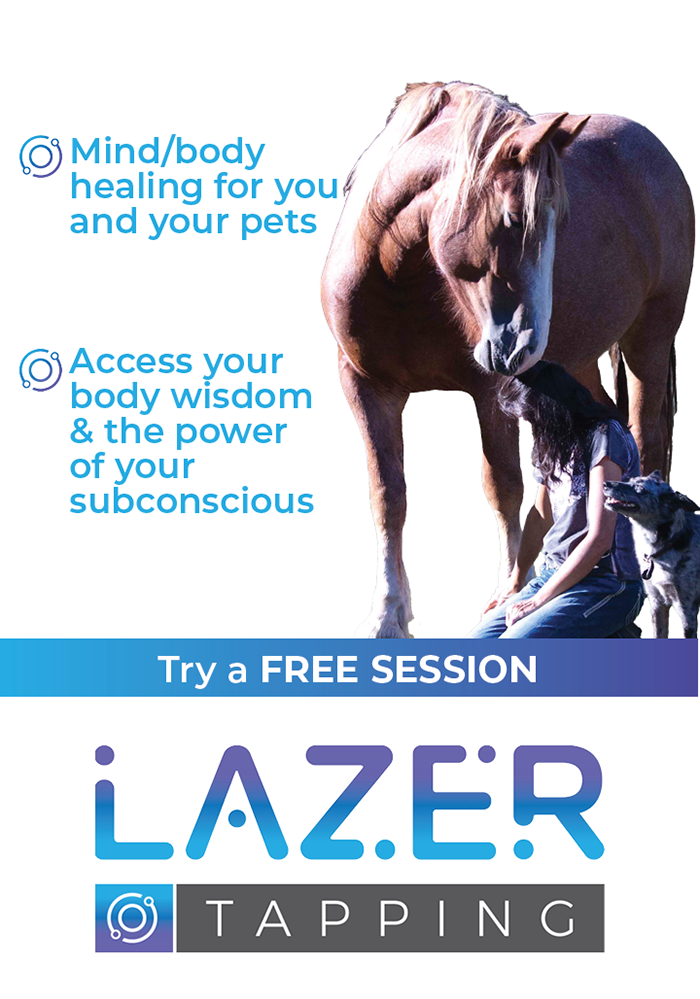
Wow, Jini! This is such a powerful message! Thank you for your clear words and sharing your experiences, examples always help so much to understand how the message looks invreal life…especially the story about Cobra not wanting his hooves cut and as a result going lame…My first reaction would have been: well, I have to care for this horse and in tend I will have to pay extra money, etc…!
I really need to let this information sink in…my body, my choice.
I am now thinking about my teenage son, mostly wanting to game, me opposing his choice…does this rule apply? Or my cat, always begging for more food, no matter what variety I give her, me restricting her with food quantity…? I wondering now, is there anything that requires interference? Then again, we wouldn’t let our kids feast on sugar every day and say, your body, your choice!
I’d be interested how you view this?
Love,
Angela
You ask such GREAT questions Angela! I actually had to do a search on my blog, because I was sure I had already written a post about this. But I couldn’t find it! So now I will write that article and post a link here as soon as it’s ready. Because you’re 100% correct – it’s not a simple, straight-forward, black/white thing. Michelle gives some great examples in her comment below too – that show how messy this can be, and also how its often a process, or a balancing act. Okay, article coming soon…!
UPDATE: I found the article! And everything I was going to say/write is in here 🙂
https://listentoyourhorse.com/intimacy-with-a-horse-involves-choice/
I feel like NO has a lot of variables to it! I am pondering about Gun Sun ( 2 1/2 yr old grandson)
We both tell each other No! Sometimes he honors mine sometimes I honor his! I think it is the same with the horses and dogs! I am thinking of a few situations where I don’t honor the No’s from all of them. Life is complex! No is simple but also complex! I feel it’s a give and receive. We just don’t always get to have our No honored? Maybe we should maybe it’s ok when we don’t? ( depending on situations..of course)
I will definitely have to think deeper on this?
When the horses and I are having our one on one sessions and learning together…I feel that’s when I honor No the most! But it is still a conversation and sometimes they benefit from working through there No?
But I know I usually do not honor the No when I feel health is at risk? I feel I consider there point of view (and will definitely dig deeper into the why…of the No…especially for future decisions) but ultimately I will usually explain why I feel the way I do If iI do not honor the No?
Example:…..I use to fly mask all the horses …But when Dreamer came into my life he had a history of a barn worker grabbing his ear (before me) to get it put on him and he did not want to wear it! He would eventually relent if I was patient enough …but I could feel he still did not want it on! So now when fly season rolls around I will offer …but always with the caveat…that it is his choice!? He says No! So easy if it’s less awful to have flues then so be it! Bullet and Banner love theres and basically dive into it! Fly spray (natural of course) is another hard No from all of them! I use to think it was the kinder thing to do…but if they don’t want it …then why would I force it?
But then we have teeth..Dreamer has not been willing to get his teeth done voluntarily…but each year he has points that are starting to cause issues to his mouth! I do offer branches but we don’t have a Forrest environment and don’t have access to forage that wears his teeth enough to keep them from causing trauma to his mouth! I am trying to prepare him better each year by explaining the purpose and his last visit was his best yet…so I understand I need to communicate much better about these things and I am a constant work in progress about this! Hooves are another interesting topic (my passion as you know) I have run the games of over trimming and tried self trimming all of 2020 but in our environment and circumstances it wasn’t working! So I am now following a trimmer online that I have seen the horses respond to in such beautifully profound ways! It has taken a lot of insistence from me to ask for yet another chance for there trust …but they are all communicating that they agree and are in agreement with the new trim approach I am applying! We trim at Liberty on about 2 acres. But I had to insist that they give me another chance because I have fucked up so much in the past…I still make mistakes but feel I am getting it correct more then wrong this whole last year! I have explained that I am learning this new approach and to please be patient with me!…yet again 😑 I also tell them that I know I mess up all the time and I appreciate there forgiveness and willingness to suffer and endure through my learning!
As usual you have made me consider thinking deeper and pondering longer on this subject! ✌🏼💚🐴
Love these examples Michelle! I’m going to quote you in an article I’m writing now about this very topic… stay tuned! 🙂
WAIT – just found the article on this topic I already wrote! Have you seen this one before Michelle? Might be worth a re-visit…
https://listentoyourhorse.com/intimacy-with-a-horse-involves-choice/
Hey Michelle, What trimmer are you following online? I trim my horses and I would love to know how to do a better job.
David Landreville….he has a FB personal page and a page called David Landreville on the vertical …if it resonates with you he has a Patreon page for only 5$ a month that has a plethora of videos that you can follow…again if that is something that resonates with you …he also has an option to up your subscription to submit your own photos for assessment and or just follow others who do…it’s called hoof builders.
I tried self trimming but it wasn’t creating the results I had hoped for with our circumstances so when I watched his videos and how the horses communicate and how he advocated listening to the horses it really touched me and I wanted to give it a try! It’s not that he is doing anything all that extraordinary ..but he is so humble and again the way the horses respond to him and the comfort they project is inspiring! I am now getting some of those same responses and it feels so damn good! ✌🏼💚🐴
Hi Jini,
I have a question: what does it mean when horses approach their head quite close to my face and look directly with one eye into my eye? A couple of horses at a stable I sometimes ride do that. They are quiet, relaxed and affectionate before or after. And while I am not able to look into a human’s eye from such a distance because it gets blurred or uncomfortable, it is the opposite with horses. I feel really happy to be around them, and I guess they know it. They sometimes follow me without a rope. Is this ‘soft, deep stare’ a sign of good contact, or something else? I am still a beginning rider and horse listener 🙂 Love your videos and explanations.
Hi Justine, I think the horses are giving you the perfect opportunity/invitation to practice your intuition/horse listening! So the first stage, and most important, is to give yourself PERMISSION to trust your own whispers, hunches, fleeting images. Read through your message above, you are already plugged into this. You already feel/sense more than you “know”, or, more than you’re giving yourself permission to know 😉
Next, TRUST that if your interpretation is incorrect, or not complete, that the horses will correct you, or give you the missing piece(s). Also know that this is an ongoing dialogue. So what they are saying today, may not be what they’re saying tomorrow. So again, it’s not about right/wrong. It’s about trusting yourself (and the horses) to believe that communication is possible, and it’s dynamic. And the more you give yourself permission, and you’re open to correction, the stronger your intuition will become. The whispers will get louder, the pictures/ideas will get stronger.
So what does your body/heart FEEL when the horses give you this ‘soft, deep stare’? Not your mind, not your brain. What does your body or heart feel?
Thank you!… I agree that giving myself permission is key, though it is counterrational since I am probably the least experienced person in the stable 😉 But I do sense it. A connection beyond time, space and physical form. It feels absolutely wonderful when it happens, a gift. It’s a long story, but I guess horses found me before I found them and I am still figuring it out. Warm greetings, J.
Your wrote you are the least experienced in the barn…I think this is a huge advantage to being open and connection! I came to the privilege of horses later in life at almost 40 years old! Big Acea was so communicative with me and I doubted all that he was saying to me yet after the fact I could tell I was correct in all I had perceived! If you are open the horses will connect with you! Like Jini said trust yourself and don’t let others approaches or way with horses affect your beautiful unique fresh self! Just Listen! ✌🏼💚🐴
Thank you 🙂
Hi Jini,
I think that this conversation is a lesson in holding individual and then collective space in relationship with all life forms. The desire of the human to think they know best is something to ponder and resist. Interesting in how this plays out even in our most intimate relationships where we tend to think we know the other so well we forget to pay attention and make assumptions, often wrong assumptions. Or we think we know everything we need to know and because of it we stop hearing what is new and truly relevant. To close down and not hear ‘no’ energy because we think we know causes problems. It takes practice in allowing ourselves to acknowledge it, not take a no personally as if I did something wrong. If I’m walking in a state that is listening, then the no is a part of a dialog between each other and we fear not the no. Cause I’m human, I like ‘yes’ so much. I feel in charge and that is dangerous. But I’m much happier when I know I am hearing and acting on the true thing that is being communicated between two life forms.
Be well and walk as if your feet are kissing the earth. Much love,
Claudia
Brilliantly said Claudia – love it. And were truer words ever written??
“Cause I’m human, I like ‘yes’ so much.”
Yet how much of our deep learning/growth has come from our kids, animal, universe saying, No?
xoxo